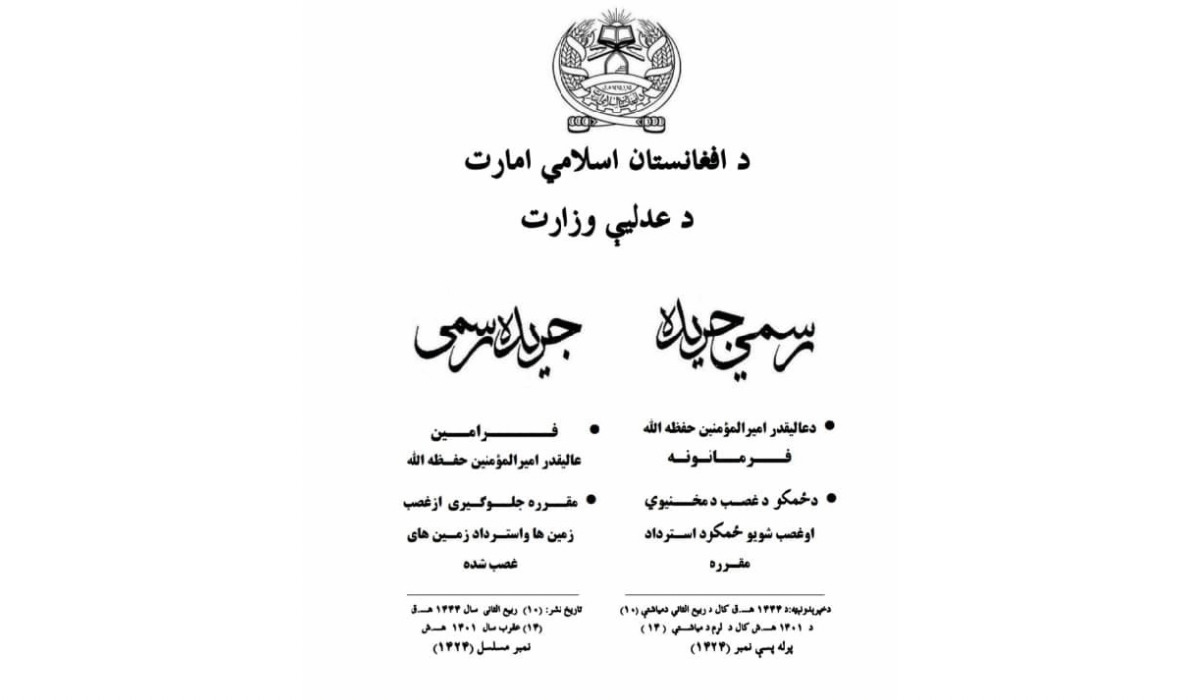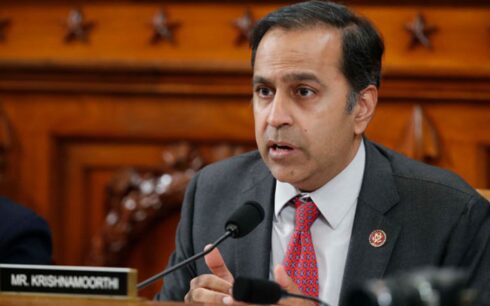Taliban has published a series of rules and regulations, issued by its leader, in an “official gazette” of the Ministry of Justice that includes 27 decrees, 22 rulings and 7 important guidelines of Hibatullah Akhundzada from 1394 (2015) to 1401 (2022).
Akhundzada’s decrees regarding hijab, prisoners of war, retribution, prohibition of poppy cultivation and implementation of Sharia law are among the most important parts of this collection.
The Taliban has only included the hijab ruling in relation to women in the gazette despite Akhundzada having issued more than 20 restrictive decrees against women.
Amu TV asked Zabihullah Mujahid, the spokesman of the Taliban, why the Taliban did not publish the decrees restricting the rights of women and girls in the gazette but he did not respond to the question.
The Taliban leader’s 20 restrictive decrees against women include the four main areas of exclusion from politics, restriction of presence or activity in public spaces, prohibition of continued education and restriction of the right to work in a number of sectors; none of these four categories are mentioned in the gazette.
“Unfortunately, the Taliban regime lacks a legal identity, and the issuing of orders by their leader [is done] while there is no codified constitution and there is no objective structure that correctly defines power. It has a compositional aspect that is considered a regulatory term,” said Ainuddin Bahaduri, former head of the commission of access to information.
The other point is that apparently the Taliban has excluded the year “1439” from its gazette. However, they refer to every other year from 1437 to 1444 AH (Arabic calendar – 2015 to 2022), except for 1439 (2017).
While the decrees of 1438 and 1440 have been published, no decree from 1439 can be seen in the gazette.
“These reports show that the Taliban claims that the world should recognize them by concealing such reports. However, the world’s recognition and interaction with these, with all its crimes and concealment, is a crime against the people and women of Afghanistan,” said Huda Khamosh, an activist.
The former government of Afghanistan had a National Assembly that was in place from 2004 until August 2021. This was seen as the main legislative authority in the republic system. But nearly two years after taking control of the country, no official authority has been established to approve laws imposed by the Taliban.
Until now, all laws introduced are based on decrees and orders issued by their leader.





